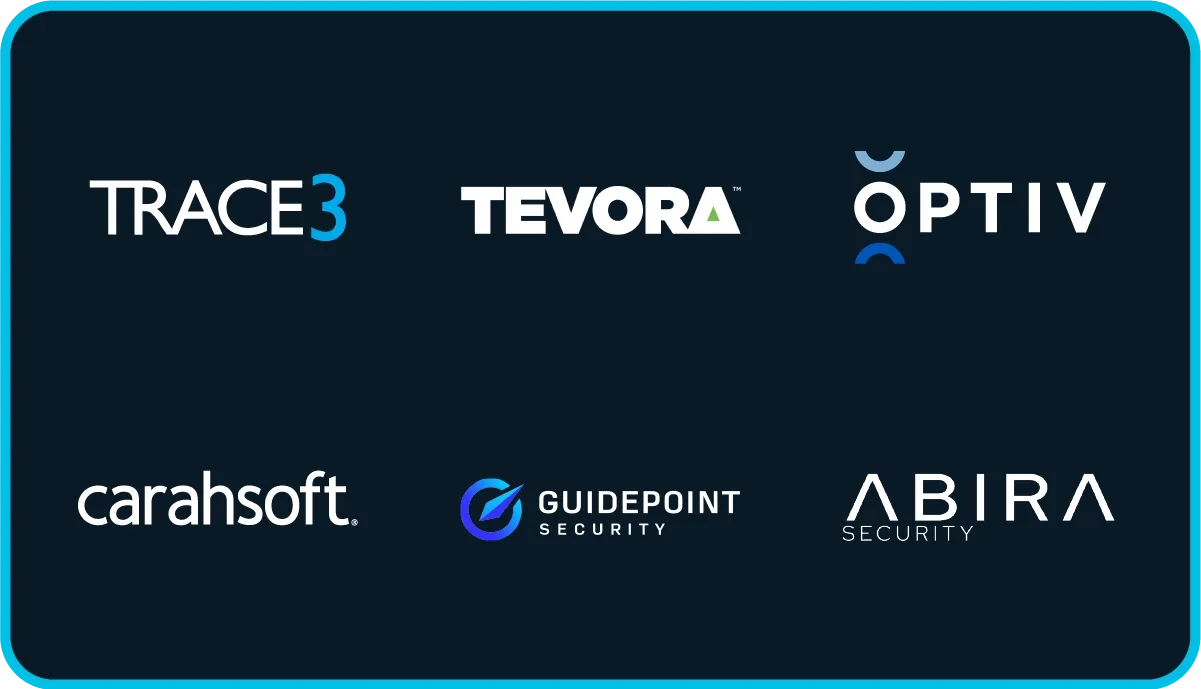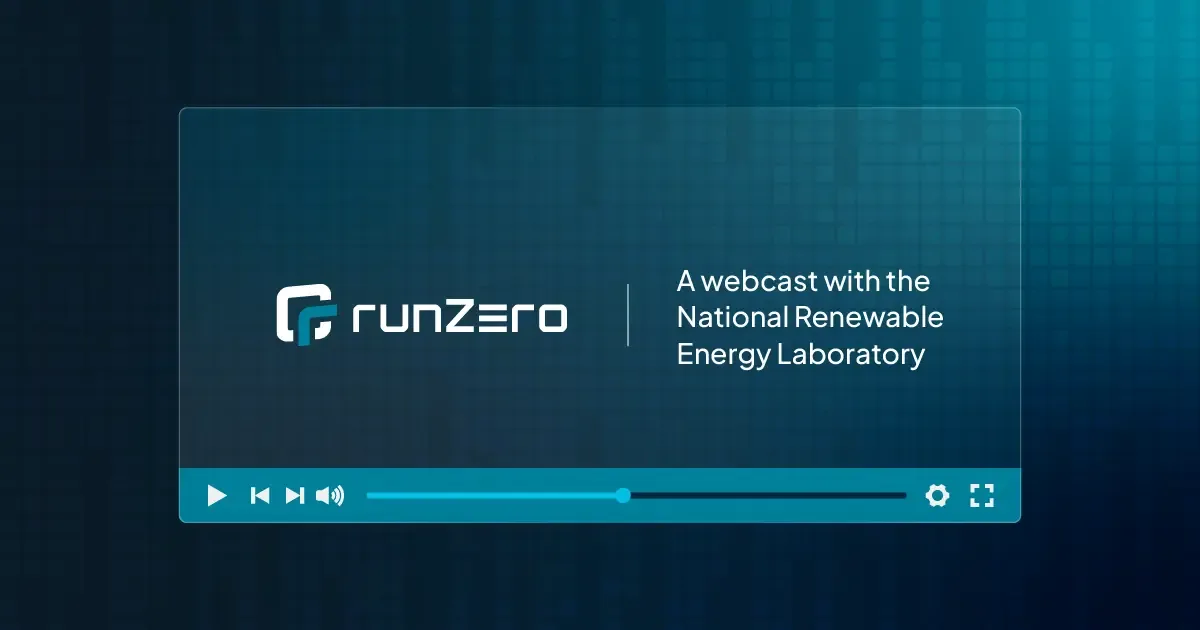Our world today is so fast-paced that sometimes kindness can take a back seat. At runZero, kindness is in the front seat, guiding how we work together as a company.
For us, it was really important for kindness to be one of our core values – not only because it aligns with how we work – but because it makes all of us successful as a result of it. We really believe that a kind environment cultivates meaningful work experiences that help drive greater success for our customers, employees, and partners alike.
To really deliver on instilling kindness throughout our company, we really focus on:
- Always assuming good intentions
- Being kinder than necessary
- Working at sustainable levels
- Hiring based on attitude and aptitude and promote accordingly
- Being fair and respectful of the candidate and employee experience
Always assume good intentions #
When we talk about kindness, we start with a shared understanding that everyone has good intentions. Oftentimes, even when someone makes a decision that seems a bit miscalculated, they do it with good intentions. That's why we strive to assume kindness before anything else.
Instead of going into a conversation on the defense, it's more productive to come prepared to have an open discussion. Asking questions demonstrates that you truly want to understand someone. For example, if a teammate has taken a different approach on a project, rather than making a statement, ask, "Can you help me understand why you chose this approach?" This kind of communication helps to build trust and kindness, as well as communication, in the workplace.
Be kinder than necessary #
It’s not always obvious what someone is going through, so we genuinely ask people how they are doing. Whenever I’ve gone into a situation with guns-a-blazing, I’ve always regretted it afterward. It’s better to keep in mind that there might be something more going on. After all, there may be other things going on in their lives, including family, personal, and medical issues.
Compassion has a profound impact on people and can help create a supportive environment for everyone to thrive. For leaders and managers, it’s important to be compassionate and ask questions when an employee is significantly underperforming compared to their baseline. Try something like this: "I'm getting the feeling that I'm not getting your best work lately. Is there something going on in your life that I should be aware of? Is there any way I can help?"
This kind of warmth not only creates goodwill between both parties, it also indicates you are a more attentive leader. One study, which tracked more than 50,000 leaders, found that those in the top-quartile of performance ranked high on levels of warmth. As it turns out, the nice ones do finish first.
Work at sustainable levels #
Some people have trouble believing this, but taking time off makes you a good employee. As leaders, it’s important to set this example.
Having down time allows us to take care of ourselves, our loved ones, and our colleagues. I recognize that it can be difficult to do in startup environments when there’s not enough people to go around to handle all the tasks. However, it's crucial to make rest a priority for all. Otherwise, you may end up with a different set of problems when conflict inevitably arises inside your teams due to stress.
If your company has a PTO policy of "take whatever you need," it can be helpful to track your days off in a spreadsheet. Research shows people actually take less than they should, so this is a good way to hold yourself accountable. As a leader, check in with your teams and make sure they are taking the time off they need to be productive.
Hire based on attitude and aptitude and promote based on merit and company needs #
When it comes to hiring, we focus on more than just experience. We place a high value on attitude and aptitude, so that everyone has an equal opportunity to join our team and grow their career.
Just because someone has been doing their job for a long time doesn’t mean they are the best at it. We are trying to encourage more diversity in the technology sector, and if we rely mainly on years of experience, then we are dipping into the same talent pool as everyone else. We focus more on demonstrable skills and an attitude that is in line with our cultural values as a company.
We also strongly believe in promoting from within where possible, based upon merit and what best aligns with the needs of the company. This helps minimize regrettable attrition and reduces the amount of time onboarding new employees.
In order for our culture to thrive, positivity is essential. Negativity can spread like wildfire, so we take it seriously.
Be honest about the job #
As much as we’re screening a candidate, the candidate is screening us as an employer. We are both trying to discover if we’re the right fit, so it’s important for both of us to be honest.
As an employer, we strive to be transparent with our prospective candidates by publishing salary range data so they can make an informed decision. We are also candid about the challenges of the role and our company, which helps build trust in our relationship. We ask all our candidates to be honest in their assessment of their skills, values, and concerns they may have about the role. We want everyone to start off on the right foot.
Another way we demonstrate kindness to employees is by compensating fairly. We pull benchmark data and compensate at the 75th percentile, meaning we pay better than 75% of employers hiring for comparable roles.
Our employees form the backbone of our company and we want to show how much we value their contribution.
Be fair and respectful to candidates and employees #
Rejection is tough, no matter the circumstances, but kindness goes a long way in alleviating the sting of rejection. We try to be as empathetic as possible when dealing with departures of any kind–whether they come from a job application or within the company.
When a prospect has been in the late-stages of interview rounds and we feel we have helpful feedback, we offer to share it. We let them know it’s honest, constructive feedback, but we also also give the candidate the option to decline, as we understand that feedback can be hard to receive, depending on what’s going on in their life at the moment.
For outgoing employees, our company culture works hard to ensure kindness and respect during these transitions. Even when legal best practices restrict our ability to share details, we always strive to uphold our reputation of kindness and understanding at all times. We understand that people sometimes just don’t fit into roles and don’t take it as an indication that someone is a bad person or employee.
Why kindness = success #
Kindness isn’t just so people feel good about their work. It’s also for the success of your company. A kind, fair, and just culture sets a strong foundation for employees to feel secure in their environment which increases productivity. A healthy company culture reduces conflict amidst employees so they can focus their energy on collaboration and productivity. Hiring is easier because you screen for candidates that share the same values and you create a positive reputation with candidates and recruiters.
Frankly, it’s also just the right thing to do. Companies are made up of people who deserve kindness from others.















